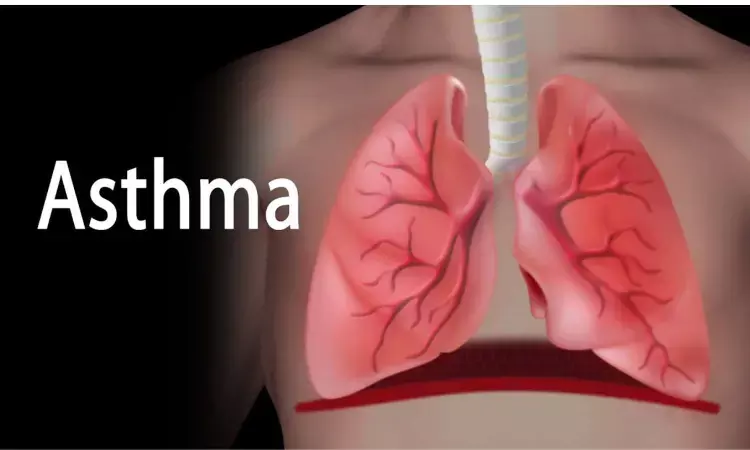- Home
- Medical news & Guidelines
- Anesthesiology
- Cardiology and CTVS
- Critical Care
- Dentistry
- Dermatology
- Diabetes and Endocrinology
- ENT
- Gastroenterology
- Medicine
- Nephrology
- Neurology
- Obstretics-Gynaecology
- Oncology
- Ophthalmology
- Orthopaedics
- Pediatrics-Neonatology
- Psychiatry
- Pulmonology
- Radiology
- Surgery
- Urology
- Laboratory Medicine
- Diet
- Nursing
- Paramedical
- Physiotherapy
- Health news
- Fact Check
- Bone Health Fact Check
- Brain Health Fact Check
- Cancer Related Fact Check
- Child Care Fact Check
- Dental and oral health fact check
- Diabetes and metabolic health fact check
- Diet and Nutrition Fact Check
- Eye and ENT Care Fact Check
- Fitness fact check
- Gut health fact check
- Heart health fact check
- Kidney health fact check
- Medical education fact check
- Men's health fact check
- Respiratory fact check
- Skin and hair care fact check
- Vaccine and Immunization fact check
- Women's health fact check
- AYUSH
- State News
- Andaman and Nicobar Islands
- Andhra Pradesh
- Arunachal Pradesh
- Assam
- Bihar
- Chandigarh
- Chattisgarh
- Dadra and Nagar Haveli
- Daman and Diu
- Delhi
- Goa
- Gujarat
- Haryana
- Himachal Pradesh
- Jammu & Kashmir
- Jharkhand
- Karnataka
- Kerala
- Ladakh
- Lakshadweep
- Madhya Pradesh
- Maharashtra
- Manipur
- Meghalaya
- Mizoram
- Nagaland
- Odisha
- Puducherry
- Punjab
- Rajasthan
- Sikkim
- Tamil Nadu
- Telangana
- Tripura
- Uttar Pradesh
- Uttrakhand
- West Bengal
- Medical Education
- Industry
Tezepelumab Shows Promise in Reducing Mucus Plugs in Patients with Uncontrolled Asthma

Asthma, a chronic respiratory condition, often involves airway obstruction caused by mucus plugs and inflammation. A recent analysis of the CASCADE (Study to Evaluate Tezepelumab on Airway Inflammation in Adults With Uncontrolled Asthma) placebo-controlled trial has unveiled encouraging results regarding the use of tezepelumab in patients with moderate-to-severe, uncontrolled asthma.
This study was published in The New England Journal Of Medicine by Lars H. N. and colleagues. The study focused on mucus plugs in the airways, a significant contributor to airway obstruction in asthmatic patients, and their association with inflammatory cytokines, particularly interleukin (IL)-5 and IL-13. The findings indicate that tezepelumab was associated with a substantial reduction in mucus plugs compared to a placebo, offering a potential avenue for targeted therapy in asthma management.
The study involved patients aged 18 to 75 years old who were randomly assigned to receive either 210 mg of tezepelumab or a placebo subcutaneously every 4 weeks for a minimum of 28 weeks. CT imaging was employed to assess the presence of mucus plugs in 18 lung segments before and after treatment. An expert radiologist, unaware of the treatment groups and time points, objectively scored the mucus plugs, with higher scores indicating a greater number of mucus plugs.
- Patients receiving tezepelumab experienced a significant reduction in mucus plug scores compared to those receiving the placebo.
- Specifically, the absolute change from baseline (mean [±standard deviation]) in mucus plug score was -1.7±2.6 in the tezepelumab group (n=37) and 0.0±1.4 in the placebo group (n=45).
- The study found notable correlations between mucus plug scores and various inflammatory biomarkers, such as blood eosinophils, eosinophil-derived neurotoxin, fractional exhaled nitric oxide, IL-5, and IL-13.
- Higher mucus plug scores were associated with increased levels of these biomarkers and decreased lung function measures, including pre bronchodilator forced expiratory volume in 1 second and forced mid-expiratory flow.
For patients who received tezepelumab, reductions in mucus plug scores were correlated with improvements in lung function and reductions in blood eosinophil count and levels of eosinophil-derived neurotoxin, which serves as a biomarker of eosinophilic degranulation.
In summary, this study suggests that tezepelumab may offer a promising approach to reduce mucus plugs, a common contributor to airway obstruction in patients with moderate-to-severe, uncontrolled asthma. These findings hold potential implications for targeted therapies that address mucus-related airway issues in asthma management.
Reference:
Nordenmark, L. H., Hellqvist, Å., Emson, C., Diver, S., Porsbjerg, C., Griffiths, J. M., Newell, J. D., Peterson, S., Pawlikowska, B., Parnes, J. R., Megally, A., Colice, G., & Brightling, C. E.. Tezepelumab and mucus plugs in patients with moderate-to-severe asthma. NEJM Evidence,2023;2(10). https://doi.org/10.1056/evidoa2300135
Dr Riya Dave has completed dentistry from Gujarat University in 2022. She is a dentist and accomplished medical and scientific writer known for her commitment to bridging the gap between clinical expertise and accessible healthcare information. She has been actively involved in writing blogs related to health and wellness.
Dr Kamal Kant Kohli-MBBS, DTCD- a chest specialist with more than 30 years of practice and a flair for writing clinical articles, Dr Kamal Kant Kohli joined Medical Dialogues as a Chief Editor of Medical News. Besides writing articles, as an editor, he proofreads and verifies all the medical content published on Medical Dialogues including those coming from journals, studies,medical conferences,guidelines etc. Email: drkohli@medicaldialogues.in. Contact no. 011-43720751


